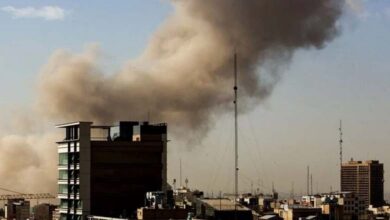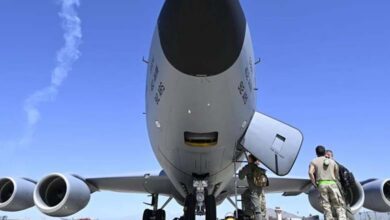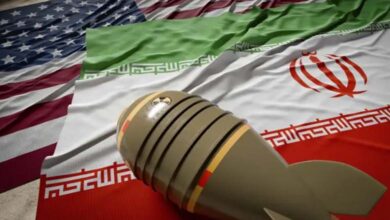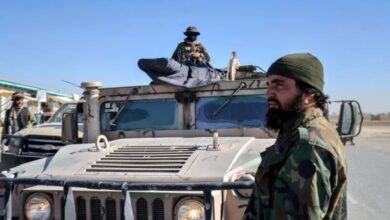Stabilization Force in Gaza… a U.S. proposal colliding with Security Council barriers
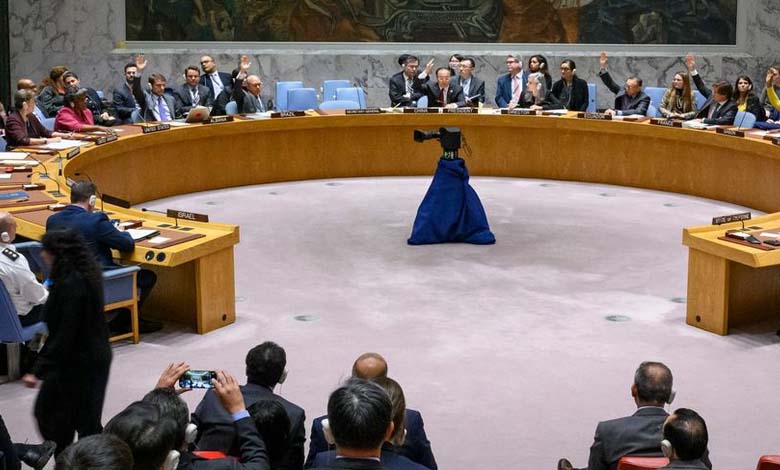
As attention turns to Gaza’s future, differing visions within the United Nations are clashing over an American proposal to manage the next phase in the Palestinian territory.
According to a report by the Associated Press, the U.S. proposal seeking a UN mandate to establish an international force to maintain stability in Gaza is facing opposition from Russia, China, and several Arab states.
These countries have voiced concerns about a governing council that has yet to be formed but would temporarily administer Gaza, as well as the absence of any transitional role for the Palestinian Authority.
-
CIA Information on Israel’s Alleged Use of Gazans as Human Shields
-
The International Force in Gaza: Cautious Concessions Open a Window for Consensus
Reservations from Russia and China
China and Russia—two permanent members with veto power at the Security Council—have called for the removal of the proposed “Peace Council” outlined in President Donald Trump’s ceasefire plan, according to four UN diplomats familiar with the matter, who spoke anonymously.
In the latest draft, released Wednesday night and obtained by AP, the United States maintained the language regarding the Council, while adding further assurances about the Palestinians’ right to self-determination, although the wording remains weak.
-
Israel Reopens Zikim Crossing to Allow Humanitarian Aid into Gaza
-
Israeli Defense Minister Orders Destruction of Gaza Tunnels: There Will Be No Hamas
While some reactions to the U.S. proposal reflect typical diplomatic negotiations involving amendments and linguistic bargaining, the opposition to the transitional council reveals deep fractures between the Council’s most influential members and Washington after more than two years of war.
Meanwhile, other members have argued that swift action would prevent undermining progress toward peace, according to one diplomat.
This was the message conveyed by the U.S. mission to the UN on Thursday, stating that “attempts to sow discord” have “grave and tangible consequences that are entirely avoidable for the Palestinians in Gaza.” The mission urged the Council to unite and pass the resolution.
-
The coexistence of opposites in Gaza: life pulsing among the dead
-
Ruling Gaza Until 2027: Details of the U.S. Draft Resolution at the UN Security Council
U.S. Secretary of State Marco Rubio also called on the Council to adopt the resolution without delay.
Speaking to reporters on Wednesday before leaving the G7 foreign ministers’ meeting in Canada, he said: “We are making good progress on drafting the resolution, and we hope to take action very soon.” He added: “We do not want to lose momentum on this issue.”
According to the same source, several Security Council members sought to introduce amendments to the U.S. draft.
-
Hamas Fighters Inside the Yellow Line: A New Test for the Gaza Ceasefire
-
Unexploded ordnance: a silent terror haunts Gaza after the war
Last week, the U.S. shared its draft resolution with the Council’s 15 members for the first time. It would grant the stabilization force a broad international mandate to provide security in Gaza through the end of 2027, in cooperation with a Peace Council that has yet to be established.
Arab states and others expressing interest in contributing forces stressed that such a mandate would be a prerequisite for participation.
A diplomat noted that Russia and China are among the states opposing the proposal, while all other members except two submitted amendments.
-
Secret U.S. Report: Hundreds of Israeli Violations in Gaza Under Investigation
-
Safe Corridor… Details of a New US Offer to Hamas in Gaza
Points of contention
Disagreements concern the path toward an independent Palestinian state and the timetable for Israel’s withdrawal from Gaza, according to two diplomats.
The new draft addresses, in part, the criticism that the resolution lacked a clear vision for an eventual Palestinian state, yet stops short of decisive language.
The text states that after “the full implementation of Palestinian Authority reforms and progress in Gaza reconstruction, conditions may be created for a credible path toward Palestinian self-determination and statehood.”
It adds: “The United States will initiate dialogue between Israelis and Palestinians to agree on a political horizon for peaceful and prosperous coexistence.”
-
Israeli raids on Gaza: the heaviest loss of life in a single night since the ceasefire
-
After the Truce… a Silent Enemy Threatens Gaza
American amendments
The revised draft states that as the stabilization force “assumes control and establishes stability,” Israeli forces will withdraw from Gaza.
It emphasizes that this withdrawal would be based on “criteria and timelines related to disarmament and agreed upon” by Israel, the stabilization force, the United States, and others.
Israeli Prime Minister Benjamin Netanyahu opposes a Palestinian state and the return of the Palestinian Authority to Gaza, while the language of Trump’s plan appears to encourage a role for a future Palestinian state.
Meanwhile, other Council members requested further clarification on the “Peace Council,” including its composition and mechanisms. The latest draft does not introduce substantial changes on this point.
-
New Gaza between American Opportunity and Palestinian Fears
-
Arab States Reject Israeli Plan to Divide Gaza
Rapid action and three alternatives
Some Council members believe that quickly adopting a UN-backed proposal would be wise to maintain positive momentum, according to one diplomat.
Another diplomat noted that the United States might grow frustrated with the negotiations and choose to move forward independently with a coalition of willing countries, without UN approval.
According to the same source, Washington has three potential options:
-
Harsh living and the specter of war: Gaza’s exhausted residents still suffering
-
Vance Tackles Thorny Issues in Gaza: Hamas’s Arsenal and Reconstruction
- accept substantial amendments;
- submit the draft for a vote, requiring nine votes and no veto from Russia, China, France, the UK, or the U.S.;
- form an “international coalition of the willing” outside the UN to take on Gaza stabilization and funding.
It remains unclear whether Russia or China would veto the current draft if submitted without major changes.
The diplomat added that Moscow and Beijing have requested the removal of more than half the draft and want only a stabilization force reporting regularly to the Security Council.
-
The recent escalation in Gaza: will it accelerate international oversight of the truce?
-
Serious truce violation: Israel strikes Rafah after vehicle targeted in Gaza
Details of the U.S. draft
The current draft stipulates that the force would lead the “disarmament operation in Gaza” and ensure the “permanent renunciation of weapons by armed groups.”
The issue of disarming Hamas—which has never fully accepted such measures—remains a major question within Trump’s twenty-step plan.
The draft states that the stabilization force will help secure border areas in cooperation with a trained and vetted Palestinian police force and coordinate with other states to ensure the flow of humanitarian aid.





